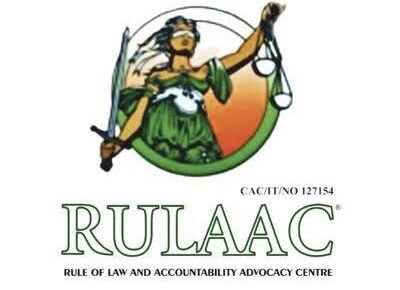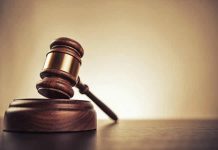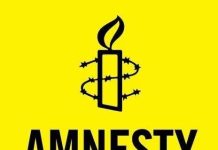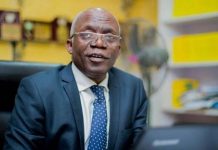The Rule of Law and Accountability Advocacy Centre, with the support of the Fund for Global Human Rights through the Action Group on Free Civic Space, has convened a one-day dialogue session to tackle human rights abuses and other infractions going on in the South East region.
The dialogue, themed ‘Voices unchained – A journey through civic space in South-East Nigeria’, provided a platform to reflect on the state of civic freedoms in the region, share personal testimonies of abuse, and chart collective pathways for protecting the right to free expression, peaceful assembly, and association in line with the Nigerian Constitution and international human rights instruments.
South East Punch reports that despite invitations extended to the South-East governors, none of them or their representatives were present at the event, which was held in Awka, Anambra State Capital, over the weekend.
The event engaged key stakeholders, including civil society organisations, media practitioners, lawyers, public officials, and affected communities, in identifying practical strategies to defend freedom of expression, association and assembly in the region.
In his opening remarks, the Executive Director of RULAAC, Okechukwu Nwanguma, represented by Mrs Onyinyechi Nwosu, said the project builds on the momentum of RULAAC’s 2024 initiative and the documentary ‘Silenced Gongs,’ which gave voice to the experiences of individuals, communities, and groups whose rights to speak, organise, and participate in governance have been undermined.
Nwanguma stated that the exercise seeks to engage, educate, and empower stakeholders across the South-East to strengthen civic space, promote accountability, and protect democratic freedoms.
He revealed that the dialogue is aimed at providing a platform for open, inclusive conversations about the state of civic space in Southeast Nigeria, highlighting both challenges and opportunities, as well as to screen and reflect on the documentary “Silenced Gongs” as a tool for advocacy, public awareness, and mobilising action to protect civic freedoms.
He said, “We also want to connect victims of civic rights violations with trained pro bono lawyers for potential legal redress and empowerment to pursue justice, and strengthen alliances and networks that can promote accountability, protect human rights defenders, and ensure that democratic space is preserved and expanded.
“We are all reminded that civic space is not a gift from the state. It is a fundamental right, guaranteed by law and sustained by the active participation of the people.
“We cannot afford to be passive in its defence.
“The exercise noted with deep concern persistent abuses of free speech and civic expression, including arbitrary arrests, intimidation, torture, and harassment of journalists, activists, students, and citizens by state and non-state actors.
“Police and security high-handedness, including detention in non-designated facilities such as local government secretariats and vigilante offices. The misuse of the Cybercrimes Act and other ambiguous laws to stifle online expression.”
In his presentation, the Director, Institute for Peace, Security and Development Studies, NnamdiAzikiwe University, Awka, Prof. Jaja Nwanegbo, cited town hall meetings, market-square debates, campus discussions, worship place gatherings, and local newspapers as evidence of safe spaces for opinion-sharing, which reinforce good governance and business confidence.
Nwanegbo noted that the South-East, which was historically known for its vibrant intellectual life, entrepreneurial energy, and political consciousness, is now changing as a result of human rights infractions.
He reaffirmed that civic space is not a privilege, but a fundamental constitutional right and a cornerstone of democracy.
He said, “A South-East where journalists operate out of fear or where public criticism is met with intimidation is a South-East that risks economic stagnation and social unrest. The path to a vibrant civic space will not be built solely on paper laws but on the consistent, principled enforcement of those laws and the courage of citizens to claim their voices.
“To remedy the situation, there must be review and clarification of laws, strengthening judicial remedies, safeguarding of press protections, and strengthening of civic education activities as means of strengthening freedom of expression in the region.”
During a plenary session, notable panellists, made some observations and listed poor youth participation in governance and normalisation of the culture of impunity, among others, as some of the challenges fueling shrinking civic space in the region, adding that the challenge is with the implementation of the laws, with many state actors complicit in the violation of the citizens’ rights.
In a communique issued at the end of the exercise, participants at the dialogue noted with deep concern, such as “Persistent abuses of free speech and civic expression, including arbitrary arrests, intimidation, torture, and harassment of journalists, activists, students, and citizens by state and non-state actors.
“Police and security high-handedness, including detention in non-designated facilities such as local government secretariats and vigilante offices. The misuse of the Cybercrimes Act and other ambiguous laws to stifle online expression.
“Mob justice and vigilante abuses, leading to extrajudicial killings, such as the Uratta incident in Imo State in May, 2025, where village youths tortured a 20-old boy to death over missing power bank.
“Judicial weaknesses, including slow trials, corruption, denial of bail, and overcrowded custodial centres holding young people arrested for petty offenses. Suppression of student voices through imposition of unelected student union leaders in tertiary institutions.
“The conspicuous silence of political leaders in Southeast Nigeria on civic space violations. Growing fear, self-censorship, and disillusionment among citizens, caused by repeated violations without accountability.”
After extensive deliberations, participants resolved to “Defend constitutional rights: Reaffirm that rights to freedom of expression, assembly, and association are non-negotiable and must be upheld by all authorities.
“Demand Accountability: Call on security agencies to end arbitrary arrests, torture, and unlawful detentions, and ensure prosecution of officers and vigilante operatives found guilty of abuses.
“Judicial Reforms: Advocate for speedy trials, bail enforcement, and pro bono legal aid to protect vulnerable citizens. Urge the National Assembly to review the Cybercrimes Act and other laws used to shrink civic space”, among others.
They also recommended federal and state governments to immediately halt the criminalisation of dissent and adopt policies that expand rather than shrink civic freedoms.
According to them, security agencies adopt rights-based policing, respect court orders, and undergo regular human rights training, adding that traditional and religious leaders use their influence to discourage mob violence and promote peaceful engagement. The judiciary assert its independence and prioritise justice in rights-related cases.
Participants reaffirmed that civic space is not a privilege, but a fundamental constitutional right and a cornerstone of democracy. They resolved to work together to “unchain voices” in the Southeast and transform the outcomes of the dialogue into concrete advocacy and action.
-Advertisement-
Grab our latest Magazine, "Chief Wole Olanipekun, CFR, SAN, A man of wide horizons and deep intentions". Get your order fast and stress free.
For more details about Newswire Law&Events Magazine, kindly reach out to us on 08039218044, 09070309355. Email: newswiremagazine@yahoo.co.uk. You will be glad you did






